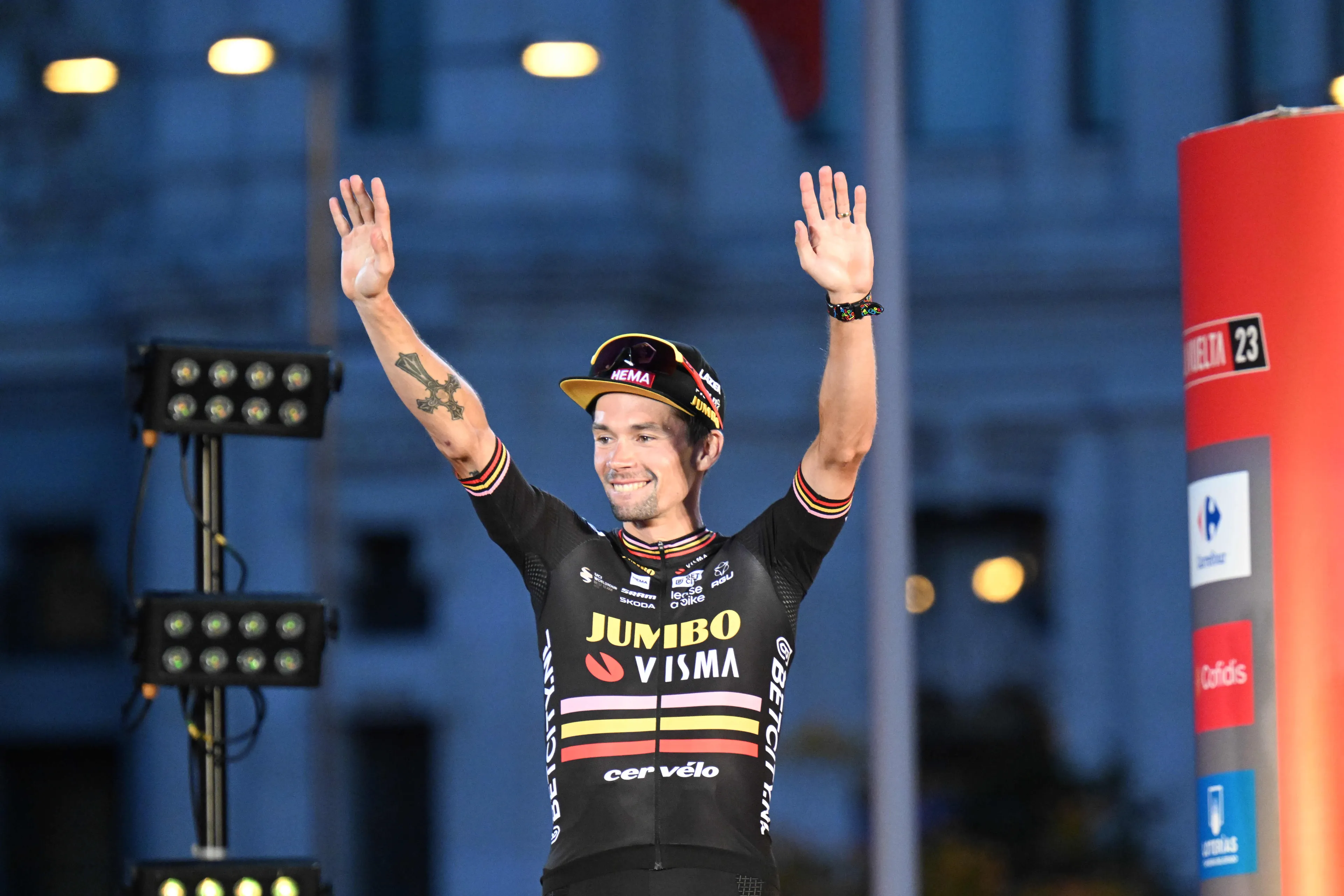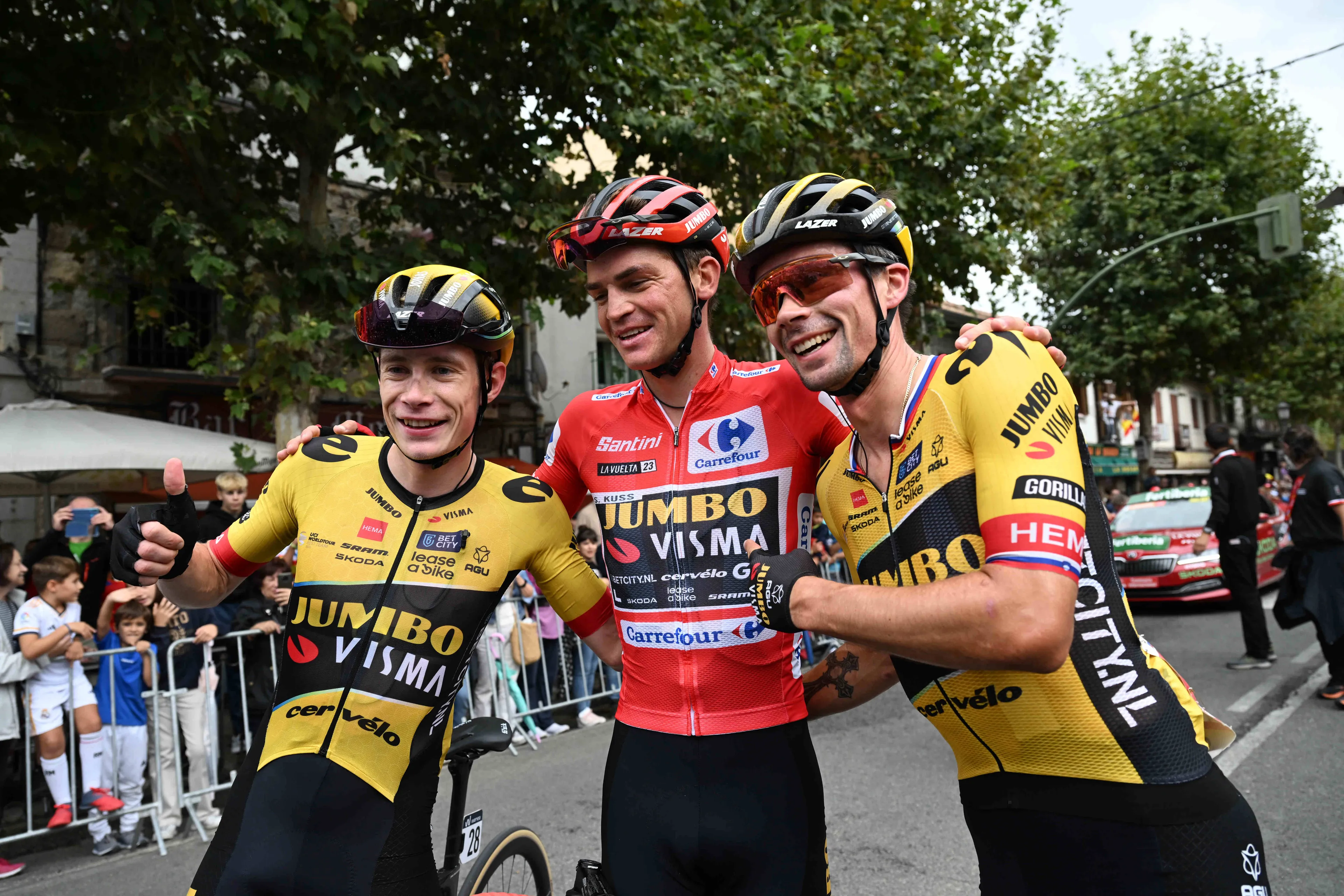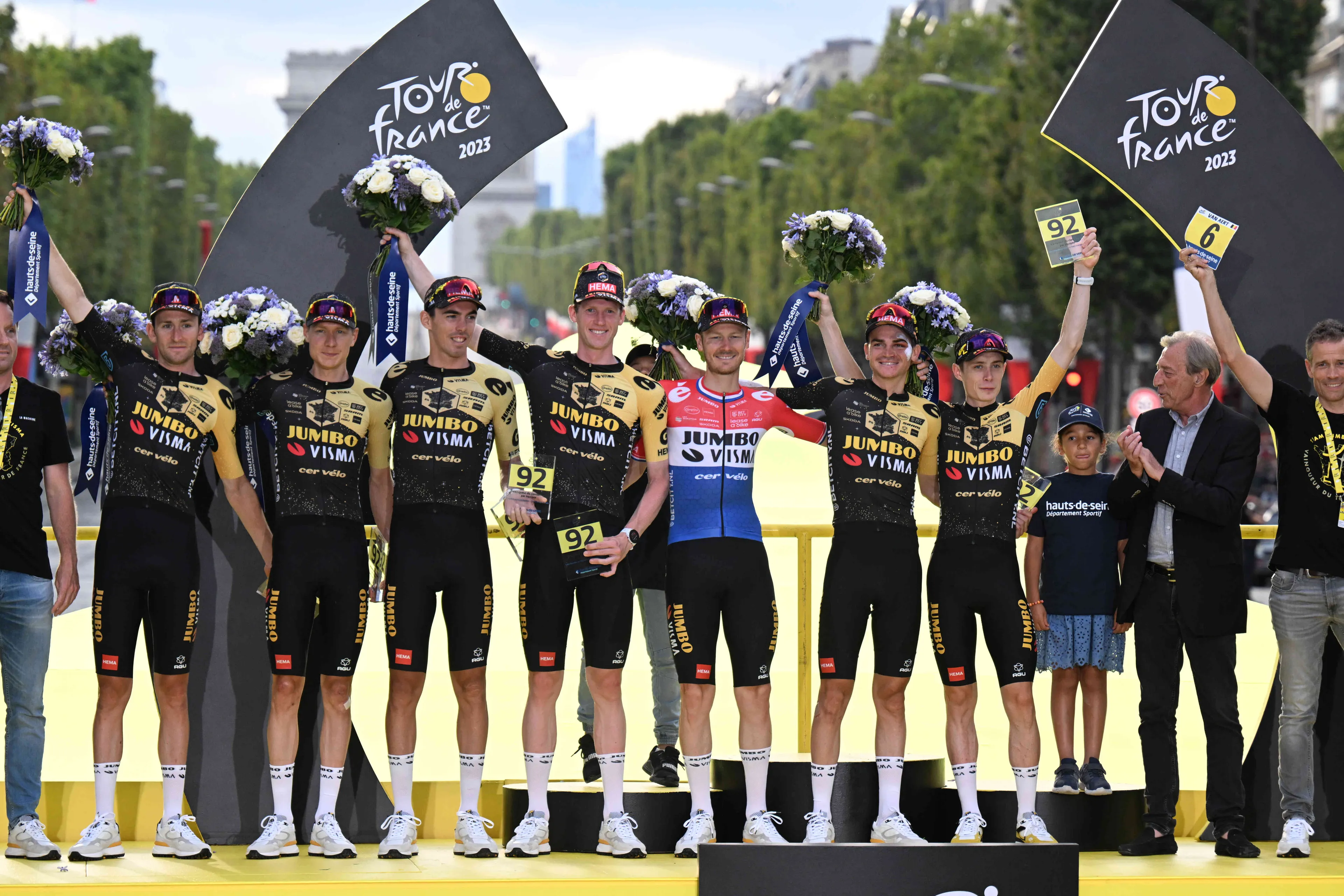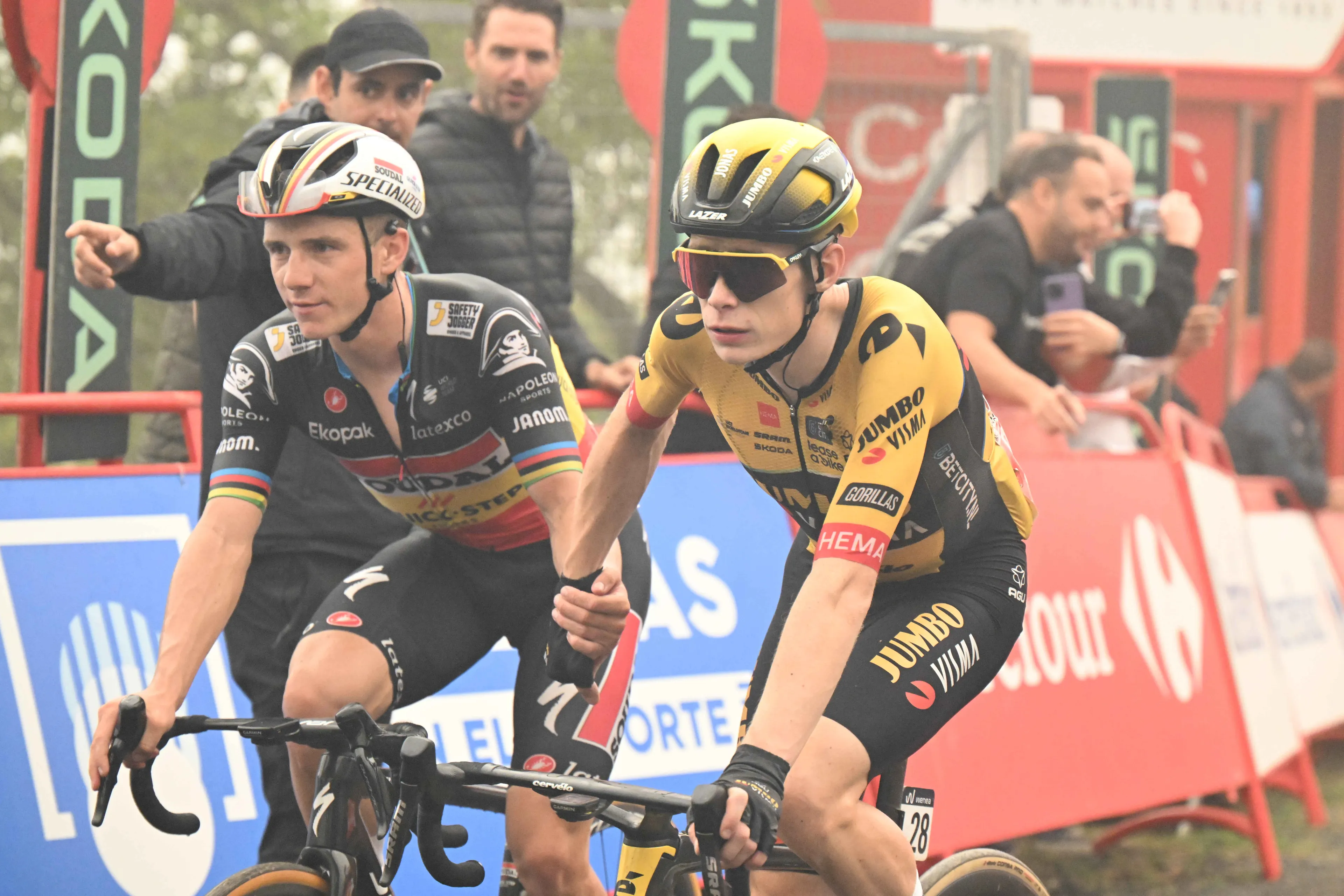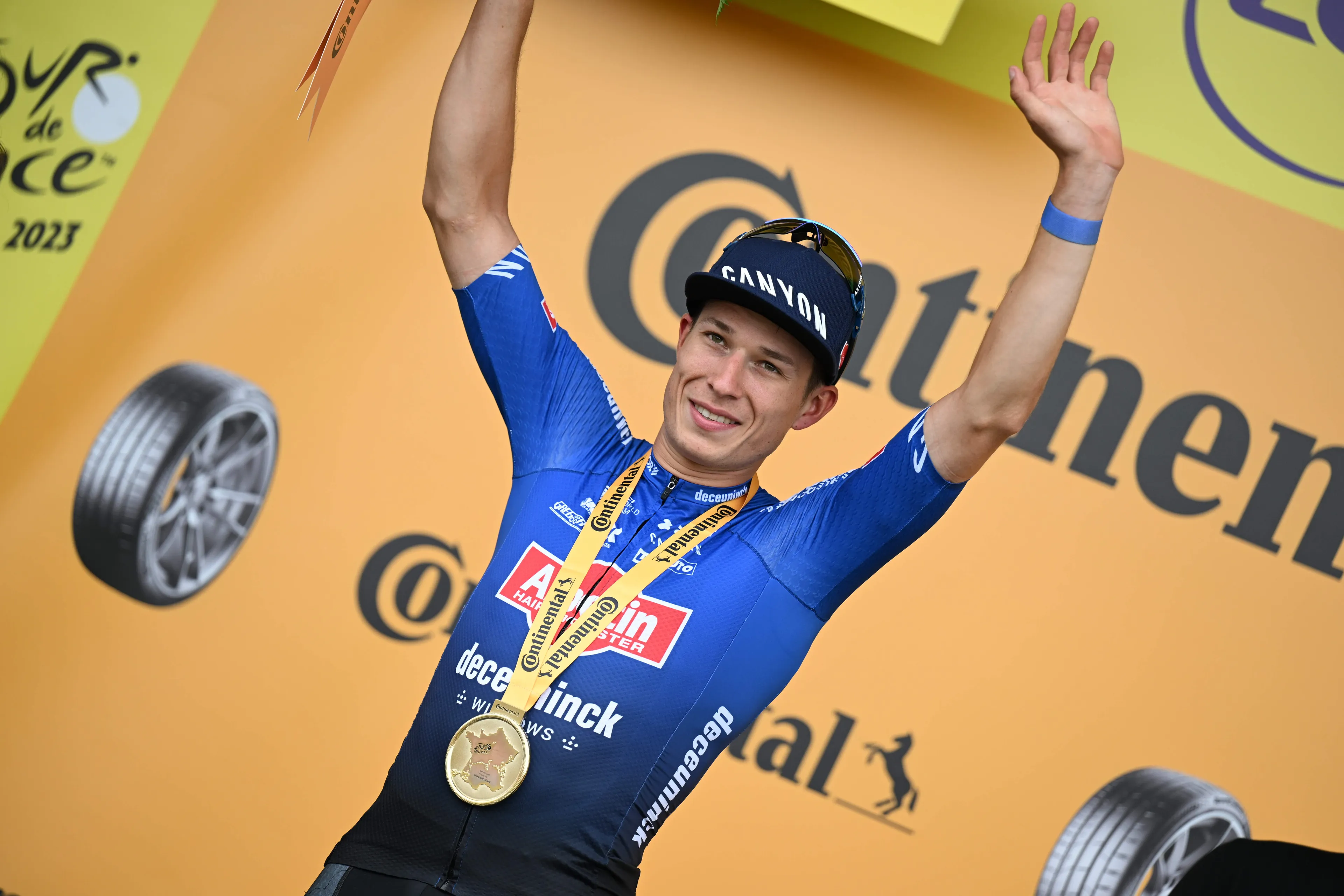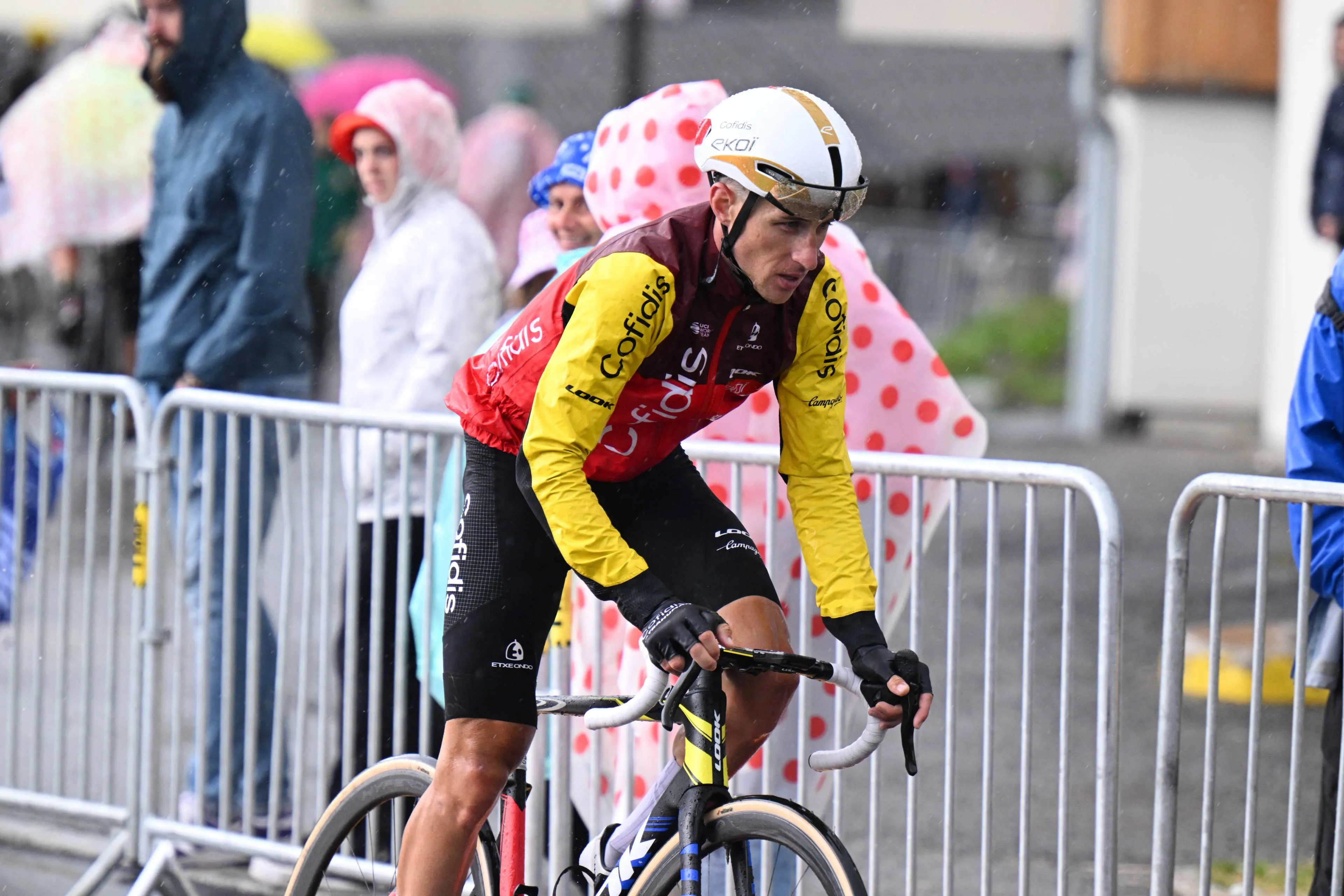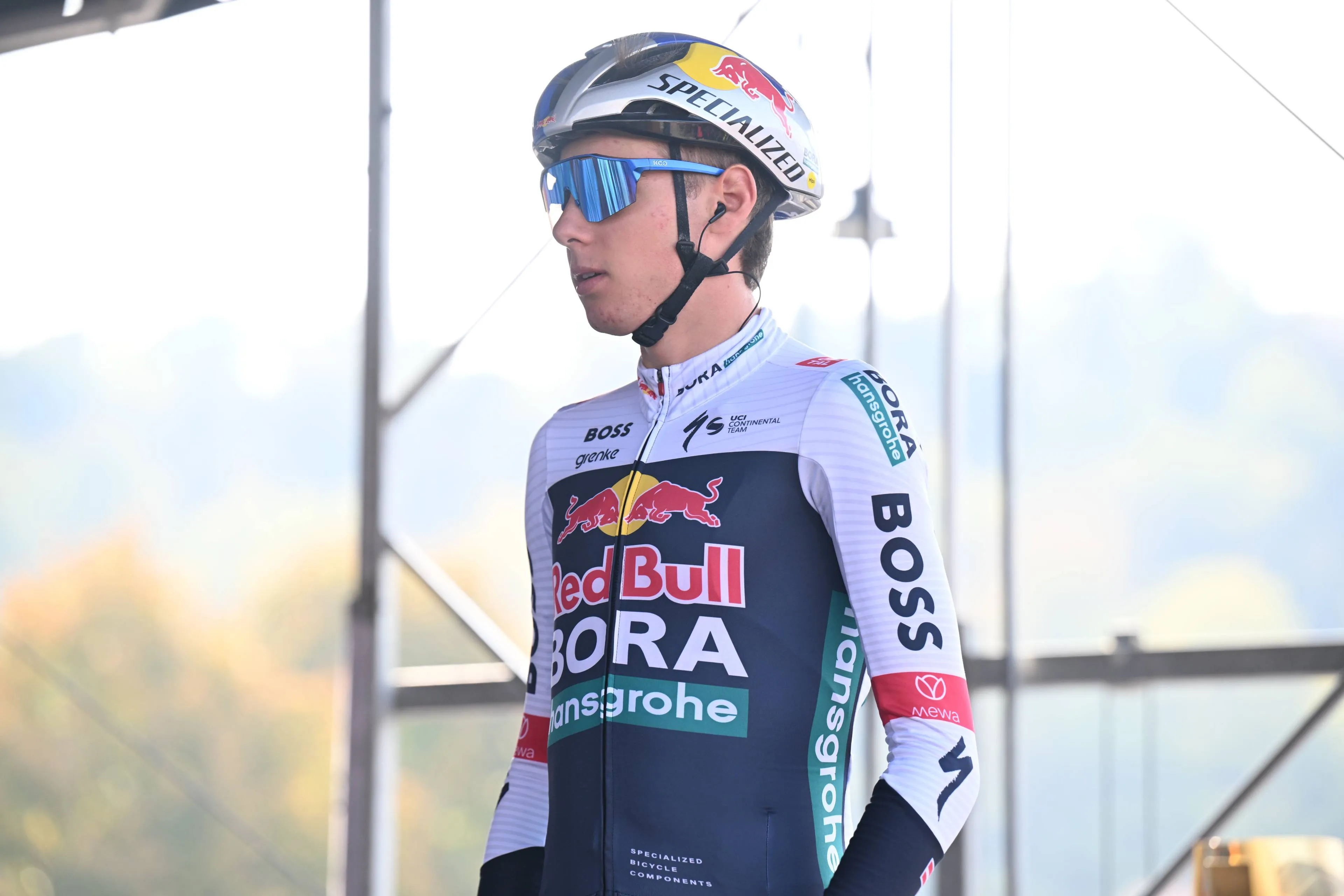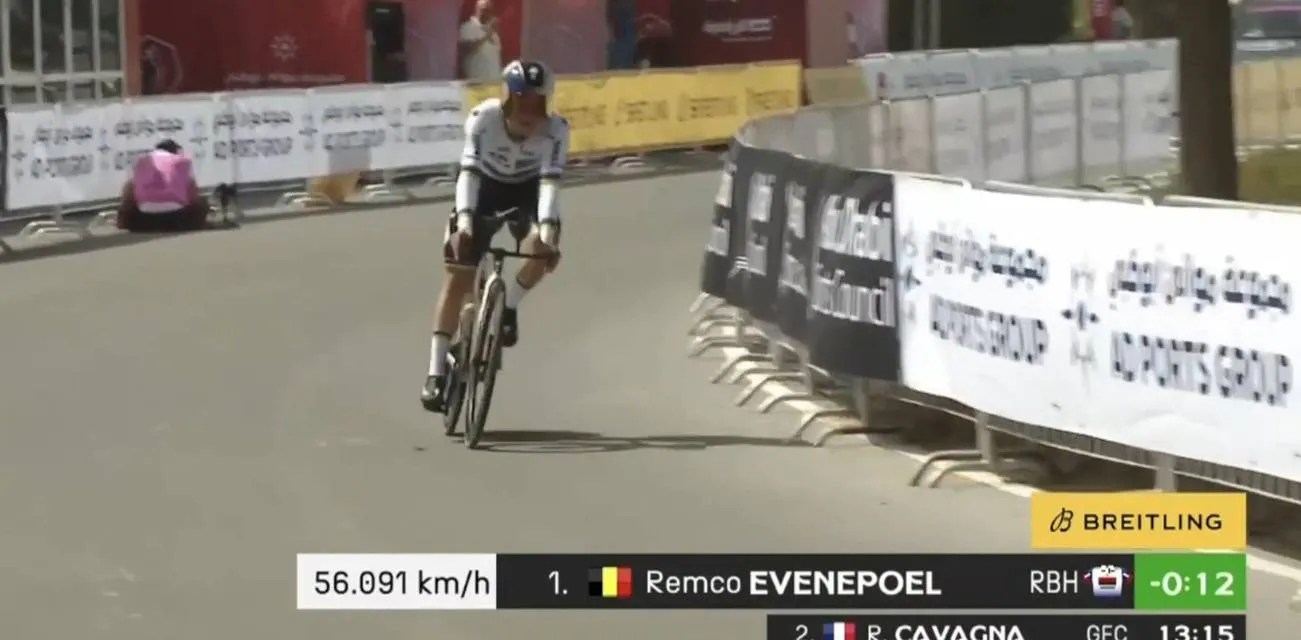"It goes in one ear and out the other" - Rui Costa now unbothered by reputation in the peloton
CyclingMonday, 25 September 2023 at 22:21
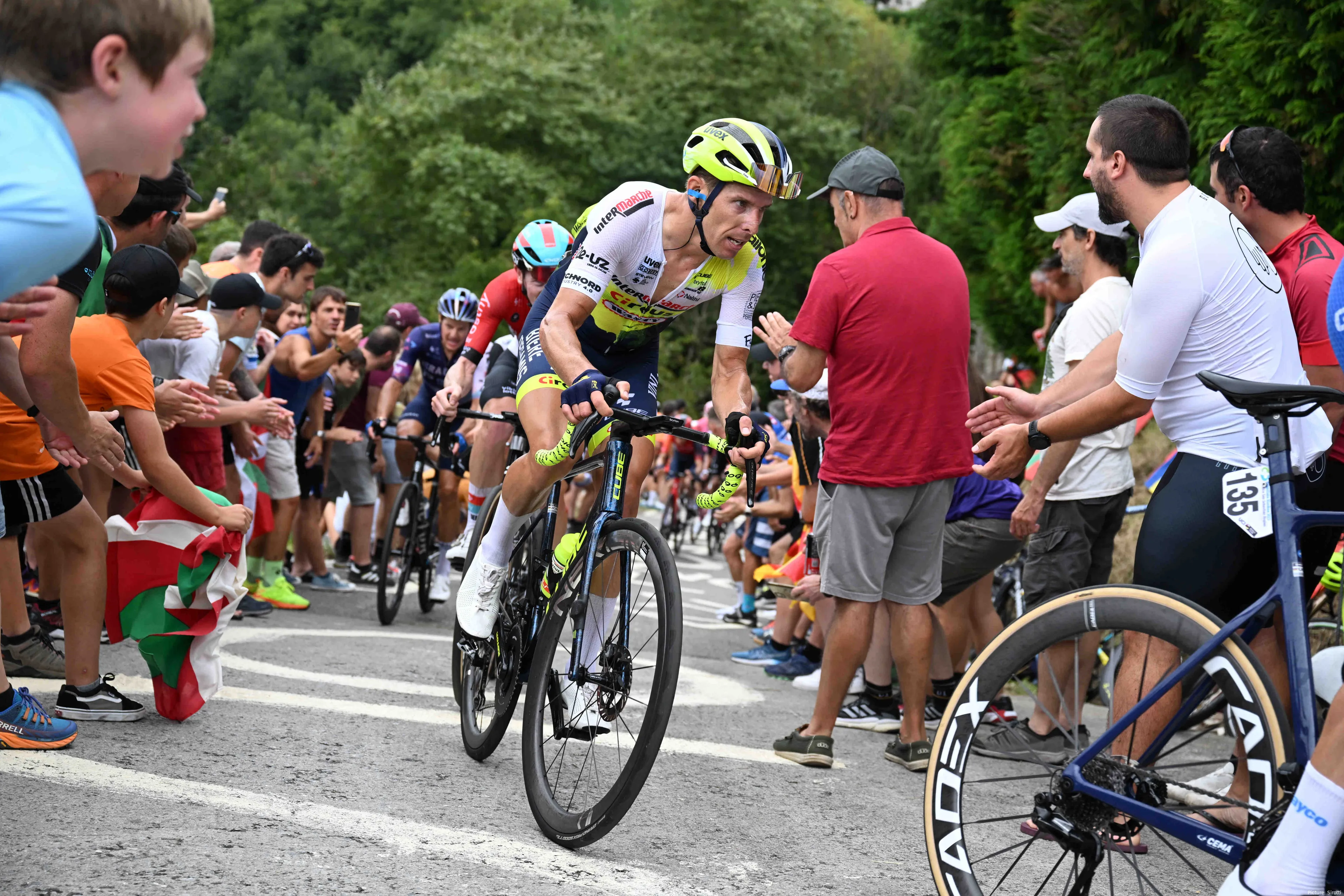
Portuguese rider Rui Costa moved from UAE Team Emirates to Intermarché- Circus - Wanty this season and was reborn in cycling, scoring four victories, some honorable places in important races and culminating the season with a victory in the Vuelta a Espana. He is currently training at altitude to close out the year in a series of Italian Classics that will culminate in Il Lombardia, but between training and resting.
"You know, when I moved to Intermarché I felt motivated. It was a new team, different bikes, different gear... it's like when you're a child, when you're given something new you're more motivated. And it's been wonderful, because I've rediscovered myself as a cyclist," he said in an interview with O Jogo.
Read also
The season is long over and Rui Costa looks back on his year representing his new colors of Intermarché-Circus-Wanty: "Opening the season with a win on the first day was important for everything to go well. The first stage of the season was excellent, up until the Strade Bianche, which I closed with fourth place. The second phase, well, the second phase wasn't the best. When I was preparing for the classics and during the altitude training, I fell ill twice in a row."
"When I started training again, I was descending the Sierra Nevada and my front wheel slipped, I fell and seriously hurt myself. I went to the Basque Country in bad shape. In the Classics, I only felt better in Liège - Bastogne - Liège, but then I went to Romandie and had some bad luck at the start of the prologue (mechanical breakdown, ed.) that left me with a knee problem, which hit the bike." The next race on Rui Costa's calendar was the Tour de Suisse and he recalls: "I seemed to be doing better again... but losing Gino Mader was a very painful moment, it brought me down a lot," he recalls sadly.
Read also
"I went to the Tour, but I wasn't in my best condition and maybe that's why I only felt my form growing afterwards. In San Sebastian I finished in the top ten, something I'd never done before, and that got me thinking about the Vuelta. I spoke to the team management and they gave me the green light. I managed to win a stage and a victory in a Grand Tour is always important, for me and for the team."
He won the 15th stage of the Vuelta, a race in which he had never managed to win, and the possibility of trying to join the small group of riders who have managed to win stages in the three Grand Tours was in the air "Aiming for a stage in the Giro? I've come close to winning there, but I don't know... it would be nice to join the small group of riders who have won the three Grand Tours, but if I can, I won't go to the Giro next year."
Read also
With such a remarkable track record, what do you hope to win by the end of your career is an imperative question: "I have a dream. The Olympic Games. To return to the Olympic Games and do the best possible preparation, which will be the Tour de France. That's where my goal lies. And the 2024 Vuelta, which starts in Portugal. For me, it'll be another dream, to be in a World Tour team and to leave my country is to put the three fundamental pieces together."
And the dream of a Monument? "I have to be realistic. That's a very difficult goal. Given the riders we have today in the classics, like Liège - Bastogne - Liège and Lombardy, where you're fighting with a Pogacar or an Evenepoel, it's not easy. The tactical game doesn't work with these types of riders. They take on teams that do a great job and allow them to attack at the right time, making it impossible to respond. For me, having been so close in the Monuments I mentioned, it was a dream, but I know it's very difficult now," he concludes.
Read also
Asked to talk about his team, which has been hit by a 50% budget cut by Circus, one of its main sponsors, Costa was touched by the team's efforts to try and renew his contract for 2024 "It's a team I really like. It's small, honest, where you enjoy working because you're surrounded by good people. They know how to listen and I know how to listen to them too. Even at this age I'm still learning and I can say that I've learned a lot in this team. They have a low budget, but it's a very successful team." Even though he's had invitations from other teams, he's adamant about his wishes: "I'd like to stay and I know they're doing everything they can to keep me in the team."
The conversation went on for a long time and Rui Costa brought up a subject that has bothered him for years, namely the nickname he has been given in the peloton "wheel sucker". Costa doesn't shy away from the question: "I don't mind it. It's a very harsh expression and I've reacted worse. Now it goes in one ear and out the other and if it comes from frustrated people, I don't take it personally. When I was younger I took it harder. Nobody likes to hear that. When you join a breakaway and compete in a stage, everyone plays their own game. If you have to pull to avoid being caught, then you have to do it. With everything I've won so far, it certainly wasn't by chasing the wheel."
Read also
We haven't seen Rui Costa wearing the colors of the national team at the recent European Championships, but he explains: "I'm always available for the national team and my goal is the Olympic Games. I know I've been called up and I haven't gone, but that's because the courses haven't been right for me. I was called up for the European Championships, but on that course there was no point."
Costa talks about Portuguese cyclists who race abroad, giving a succinct analysis: "More and more Portuguese riders are being recognized in the World Tour. It's not just me and João (Almeida). We also have the Oliveira brothers (Rui and Ivo), Ruben Guerreiro, Nelson, all of whom play a good role. João has great results in three-week races and will continue to bring us joy. António Morgado will be different, a very strong racer, he'll certainly be a Classics racer."
Read also
"A lot has changed in recent years. When I was Morgado's age, I didn't have a physical trainer or nutritionist... I trained and did what my legs responded to. Now, they've been accompanied since they were 15, so they've developed a lot by the time they're 20, twice or three times as much as I did, so they emerge into the limelight very early."
At the age of 36, Rui Costa has 36 career victories, 33 in international races and a World Champion title right at the top. In the Grand Tours he now has 4 stage wins, 3 in the Tour and 1 in the Vuelta, making him the second most victorious Portuguese, only behind the eternal Joaquim Agostinho who holds the record of 4 wins in the Tour and 3 in the Vuelta.
Read also
claps 10visitors 8
Just in
Popular news
Latest comments
- Completly agree, Jan was in front of van gils, following Pidcock wheel, it was Van gils who tried to force his way through Jan and the barriers. Are they blaming Jan because he belongs to the richest team that win a lot?
 maria2024202418-02-2026
maria2024202418-02-2026 - Clickbait title, not reality-based. Yawn.itsent18-02-2026
- lame, but probably correctantipodeanpedalfan18-02-2026
- Van Gils rode like wanted to get crashed or way too over confident that he was going to overtake Jan before getting pinched. It was obvious were Jan was going/had to go and MVG had the whole road to give an inch so he would have a chance to overtake on the rightjad2918-02-2026
- Double book this showing with the Melania documentary and you might get 100 people to see it...total !frieders318-02-2026
- Simple solution...stay off the barriers since you might get closed out ! Christen's sprint was legal as he was trying to get into the slipstream of Pidcock.frieders318-02-2026
- I believe Remco now understands that he will have issues reaching the top step as long as Tadej is in the Tour, whiles he's a year junior to Tadej he has had his upper body rebuilt twice now from crashes over the last few years. I think he has a chance to win the Tour in a few more seasons, you can only prepare yourself as best you can and try. He said he needs to race some more one week stage races, he should, he can probably win them all. I also believe Remco should aim for another Vuelta if he comes out of the Tour in good form and maybe he should think about the Giro again for next season. This is potentially Tadej's fifth Tour win coming up this year, no one is going to derail that unless he falls off the bike or gets really sick.awp17-02-2026
- Not only will the great narcissist get his voice, but he'll benefit financially from this as well. Who says that cheating and lying your way to victory doesn't pay?
 santiagobenites17-02-2026
santiagobenites17-02-2026 - It'll make a good double feature with the Michael Jackson soft focus biopic.LumbarDeniro17-02-2026
- Yeah, whilst MVDP would never break a bone on the MTB... 😂Sexass17-02-2026
Loading
Write a comment

